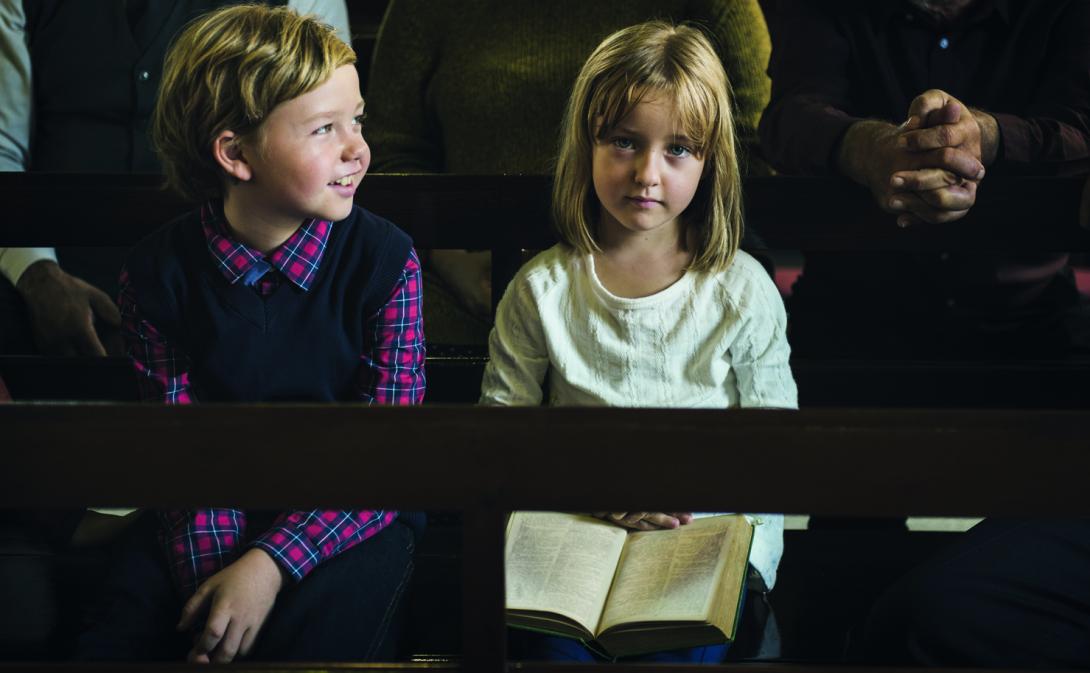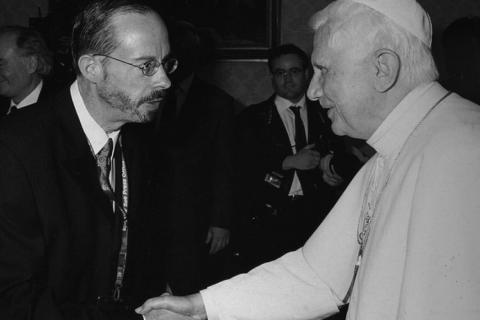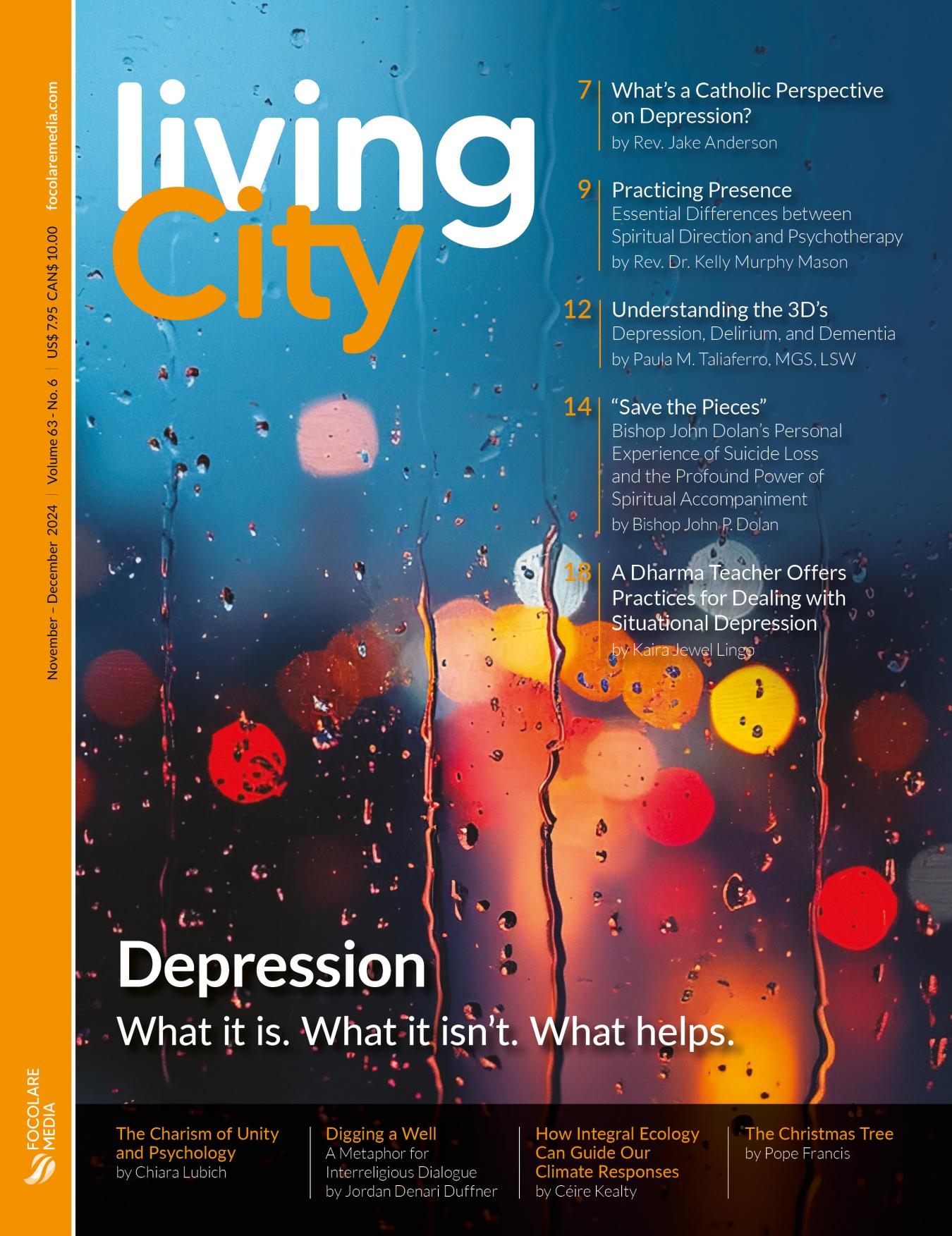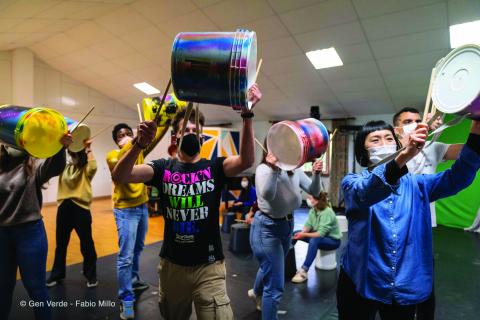
Photo by Rawpixelimages | Dreamstime.com
This question is asked often by worried and frustrated parents, grandparents, and step-parents, who are seeking a way to family unity in the practice of their faith.
Deacon Joe — a father and grandfather himself — who has served as a Director of Religious Education, Youth Minister and in many other roles in parish life, shares this reflection:
“I have said, ‘You are their parent, and you can’t always be their friend. Sometimes we have to do what we think and know is best for our children despite their objections.’ This also calls on the parents to remain calm and keep their focus for Mass despite what many times is some pretty tough resistance.
“Secondly, parent’s unity on this issue is very important. The attempt to communicate why going to mass is important is undermined by a parent who does not attend Mass with their spouse and children. The ‘daddy doesn’t go’ can really hurt in this situation.
“A third point: going to mass is not a task, but it means following an invitation from someone who loves you. I have always tried to share God’s unconditional love with my students. Even though they may choose not to attend Mass or be active members of their parish community, I think they still know deep down that they are loved because of God’s love for me that I have done my best to share with them. I still hear from many of them. Some I keep up with them and send gentle reminders through Facebook or Twitter. I continue to encourage, love, and accept them but always hope and pray for a renewed and improved relationship with God.
“Some students who ‘take a break’ from church attendance during their college years do come back from time to time, especially on Ash Wednesday (which isn’t even a holy day of obligation!) or on Christmas and Easter. Some have returned to get married in the church or to have their children baptized. So, there is hope, even if there is a time away from practice.”
The Church also has some responsibility to help and not discourage folks from Mass attendance. A Notre Dame study showed the two things most remembered by Mass attendees are the music and the homily. We must try always to do these with love and with zeal. Ministers and clergy and those seen by our youth as “Church” must also be genuine in faith, love and service so that even if in their view “the institutional Church” seems to fail, Jesus is still lived out and seen.
One perspective that may help is to compare the role of a parent or mentor to a “coach” concerning right practices in order to be able to “win the game.” Many parents and teachers will do all they can, pulling out all the stops to make sure that the children entrusted to them will go to school, do their homework, attend practices for the sports in which they participate and show up at work or do their chores. If the same attention is given to attend mass, it sends the signal that showing up on Sunday (or Saturday evening) is really an important part of life. In the end, as the deacon suggested above, they have to be a loving parent or guide, doing whatever is necessary to see to it that the children go the right way.
A common issue is formation on what mass really means, and why it is different from praying at home or in nature. Many 12-year-olds don’t really understand what the Mass is all about. Priests should consider celebrating a special Family Mass, offering appropriate explanations for children. Parents should share with their children what the Mass means to them, and when they bring young children to Mass, they could choose to sit in the front pews and explain to the kids what is going on at Mass (with their pastor’s permission).
The most effective way is personal example. In the Focolare Movement, Chiara Lubich saw early on that she could share her heart freely with the “Gen,” the young members of the Movement. By offering her own joy in what God was doing in her life, she won them over. And young people can see practice of the faith differently by introducing them to saints who were their own age, such as Blessed Chiara Luce Badano or Carlo Acutis.
Parents can most effectively “fight the battle” for Sunday attendance at church by ensuring that they live the Word daily and learn to hunger for what Jesus gives in the Eucharist to sustain this way of life.
While the example of the parents and the family practice of Mass is the most helpful motivation for young people to be “encouraged” to be present, it is also necessary to assist them in understanding the meaning of Mass. We can offer suggestions to invite them to make the Mass truly their own. Next month’s question will offer some ideas in this regard.
Please send your questions to livingcity.ed@livingcitymagazine.com
Fr. Timothy Hayes, a pastor of the Diocese of Columbus, offers answers on faith questions together with a group of priests who share the spirituality of unity












